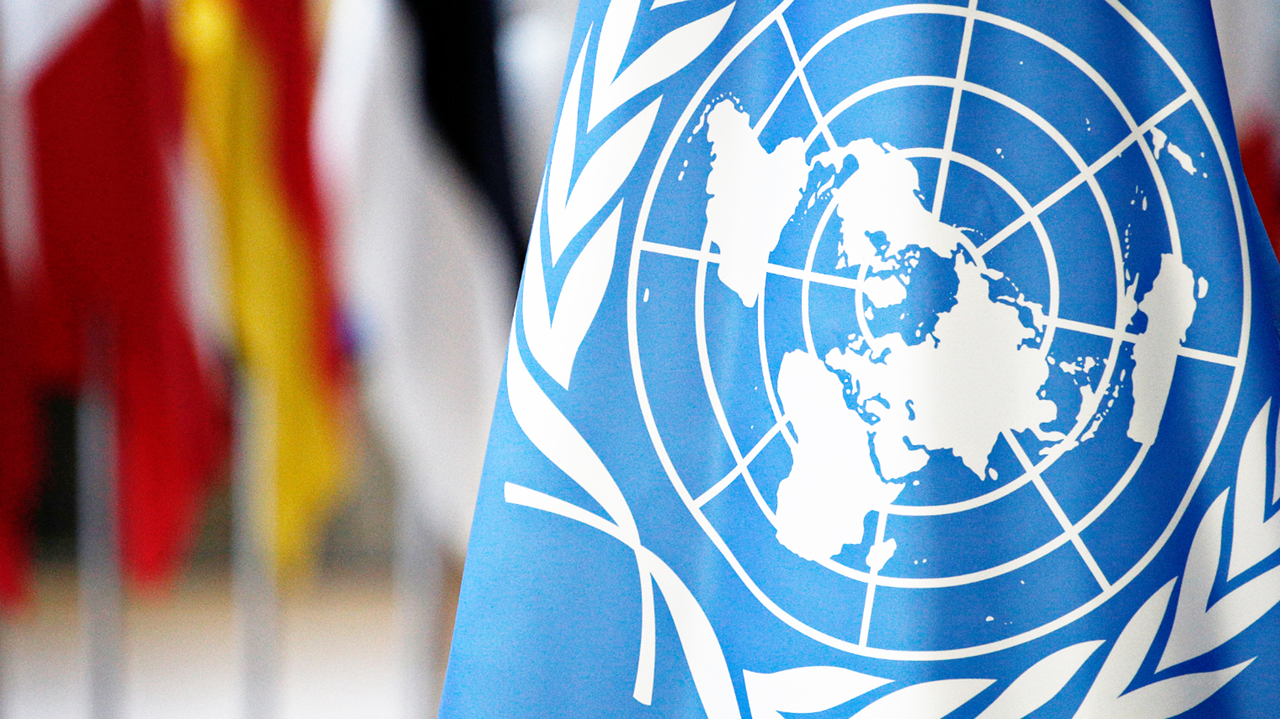 |
| UNICEF flag |
The United Nations Children’s Fund (UNICEF) has said that the average life expectancy of children born in Nigeria is expected to be at 62.8 years.
The UN agency, which put the global average of children’s life expectancy at 84 years, declared that Nigeria ranks among the lowest in the world.
A statement released yesterday in Abuja by UNICEF’s Acting Representative in Nigeria, Renu Wadhwa, said new year’s babies born in Ghana and neighbouring Niger Republic have life expectancies of 73 and 71.4 years, respectively.
He, however, said babies born in Central African Republic (CAR) and Chad would have a similar life expectancy to those born in Nigeria, but with only 1.4 years less, projected at 61.4 years.
According to him, the highest life expectancy, projected at 116.4 years is for children born in Switzerland.
Besides, UNICEF had declared that an estimated 21,439 new babies would be born in Nigeria on January 1, this year, a projection it said accounted for nearly six per cent of the estimated 371,504 babies projected to be born globally on same day.
The statement said out of the 371,504 babies that would be born globally on first of day of 2021, over half of them are estimated to take place in 10 countries, with Nigeria having the third highest number of births.
According to the projection of the new-born babies, India has 59,995; China, 35,615; Nigeria, 21,439; Pakistan, 14,161; Indonesia, 12,336; Ethiopia, 12,006 babies; United States, 10,312; Egypt, 9,455; Bangladesh, 9,236 and Democratic Republic of the Congo (DRC), 8,640.
“These figures, while difficult to contemplate, are estimates and not predetermined; there are many things we can do to improve the fate of those children born today in Nigeria. We can and must work to change the underlying factors that can improve the life expectancy of Nigerian children.
“This has been a difficult year and there is perhaps no better way to turn the page than to welcome new young lives into the world. There are many opportunities before us in 2021 and now is the time to begin to build a better society for our children. Children born today will inherit the Nigeria we begin to build for them”.
He added: “Over 14 million Nigerian children are chronically malnourished and 2.7 million acutely malnourished. Cross-sectoral solutions to strengthen the health, food, water, sanitation and social protection systems can reverse these high numbers and keep children alive.
“As much as 43 per cent of Nigerian children do not receive all their recommended vaccinations at the right time- a critical step towards ensuring survival and good health. Birth registration of Nigerian children under one year is still only 4.0 per cent and 54 per cent for children under five years.
“Achieving universal birth registration is an important platform for allowing children to access health care and other critical services throughout their lives. One in three Nigerian children do not complete primary school,” Wadhwa stressed.
Although the agency affirmed that education remains the known factor to improving the health and life outcomes throughout a child’s life, it, however, contended “only one in every eight babies born would make it to their 5th birthday, saying those who do survive would face other challenges as young Nigerians, especially girls.
“For example, an estimated one in every four Nigerian girls will experience sexual violence, if nothing is done to reverse the trend and stop violence against women and girls.
“We can make Nigeria a better place for children to survive and thrive. This new year offers a new slate with opportunities to reimagine, respond, recover and indeed build a more equitable and safer Nigeria for children, especially the girl child,” Wadhwa said.
In this article:
